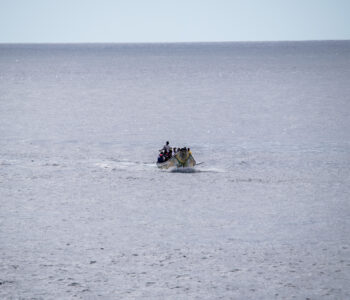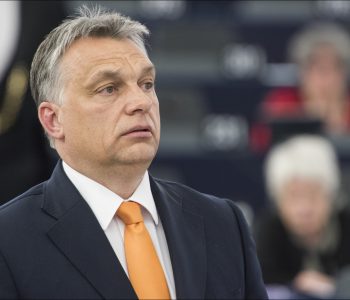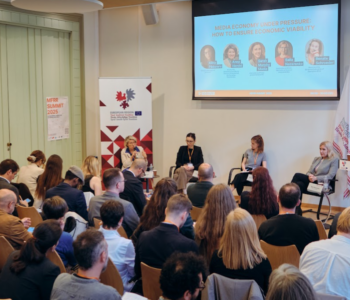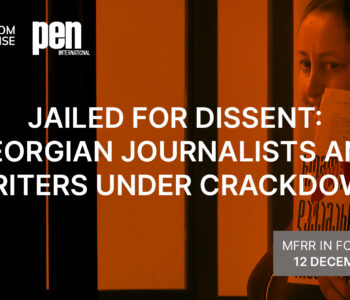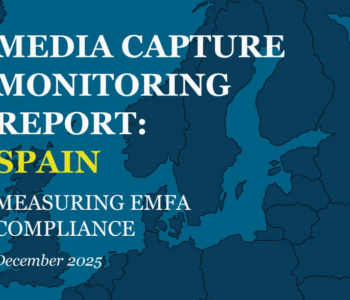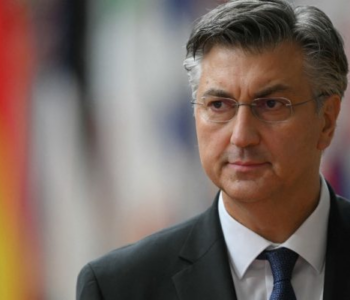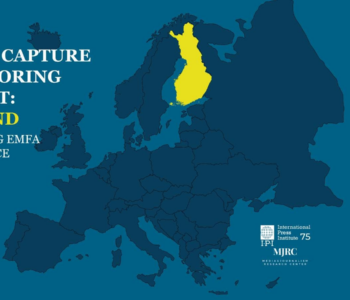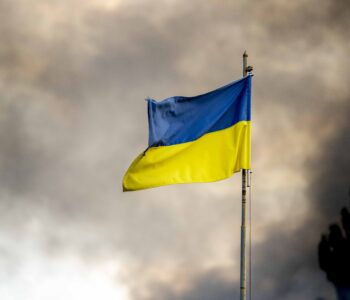On 8 December 2025, the Council of the European Union approved a negotiating position on a new EU-wide law for the return of so-called irregular migrants. This includes a common “return order”, mutual recognition of returns, and the possibility of sending rejected asylum seekers to “return hubs” or “safe” third countries. It is a dangerous decision with serious implications for journalists and human rights defenders under threat, especially those already living in exile.
According to the EU’s own criteria for qualifying a third country as “safe”, the country concerned should respect fundamental rights, the rule of law and protection from persecution of journalists and other at-risk groups. But these indicators resonate in the exact opposite direction in many of the newly listed states. Many of the countries listed as “safe” third countries are the very same places where journalists face imprisonment, harassment, and violence. Reporters Without Borders’ Press Freedom Index consistently ranks these states as high-risk environments for the press. This year’s ranking of the newly added “safe” third countries: Out of 180 countries – Bangladesh 149, Colombia 115, Egypt 170, India 151, Kosovo 99, Morocco 120, Tunisia 129. They show patterns of arbitrary detention, crackdowns on independent media, widespread impunity for violence, and state-enabled persecution of critical voices. These cannot be treated as safe, not as countries of origin, and certainly not as third countries for forced returns.
Independent investigations show conditions in which EU policies may have a devastating effect to the people on the move, including journalists. The 2024 Lighthouse Reports investigation, Desert Dumps, winner of this year’s IJ4EU Impact Award, documented how Black people on the move are abandoned in life-threatening border zones in North Africa as a direct consequence of EU-funded cooperation agreements. Such findings demonstrate that these environments fail the EU’s safety standards in practice, while also revealing how EU policies can contribute to the very dangers now being ignored in return decisions.
ECPMF’s recent study on Transnational Repression (TNR) of journalistists in exile in Germany displays how authoritarian regimes continue to target journalists abroad through digital harassment, surveillance and physical attacks. ECPMF wants to highlight that some of the affected journalists come from exactly the same countries the EU now designates as “safe”. Requests for protection, relocation, asylum and emergency assistance often come from journalists escaping harsh conditions in countries like Afghanistan, Russia and Turkey, and others, but also countries such as Egypt and Bangladesh.
It is important to note that the journalists documented in exile in Germany or the EU represent only a fraction of those at risk, amongst others because EU protection mechanisms for journalists under threat are not accessible – hampering them from relocating to EU Member States.This means that the scope of transnational repression is far bigger than EU-based cases suggest. Countless journalists reach out to the undersigned organisations, from countries such as Sudan or Palestine, facing severe threats without any realistic opportunity to seek safety.
ECPMF already warned about the EU’s position on “safe” third countries on 2 May, World Press Freedom Day, when we raised awareness about transnational repression targeting Egyptian journalist Basma Mostafa. Journalists who already fled due to threats now face additional stress and fear that a return could place their lives in danger. Such policies could be used to silence critical voices and expose threatened journalists to danger and psychological stress.
What needs to change
The EU must guarantee that no journalist, human rights defender, or individual at risk of persecution is returned to countries where they face threats, harassment, or violence. This includes ensuring that asylum claims from these groups are given priority and that their protection needs are fully assessed.
This policy undermines press freedom and puts vulnerable people at immediate risk. For these reasons, we insist that the EU revises and overturns the classification of countries such as Bangladesh, Colombia, Egypt, India, Kosovo, Morocco, and Tunisia as “safe” for returns, given their documented records of press freedom violations, arbitrary detention, and persecution of journalists and human rights defenders. Alternatively, the EU should consider adding an amendment that exempts journalists fleeing repression in these countries.
All future decisions must uphold the clear, evidence-based and transparent criteria for designating “safe” third countries, taking into consideration the track record of press freedom and other human rights violations. The EU needs to ensure these criteria is applied rigorously in line with international human rights standards and the EU’s own commitments to fundamental rights and the rule of law.
Lastly, we ask the European Commission, Council and Parliament to recognise and address the risks of transnational repression, including digital harassment, surveillance, and physical attacks on journalists in exile. This includes providing safe relocation, legal protection, and emergency assistance to those at risk. The EU can only designate third countries credibly as “safe” when it also invests in upholding the criteria it applies for such qualification by addressing repression in those states and ensuring that fundamental rights are upheld.


